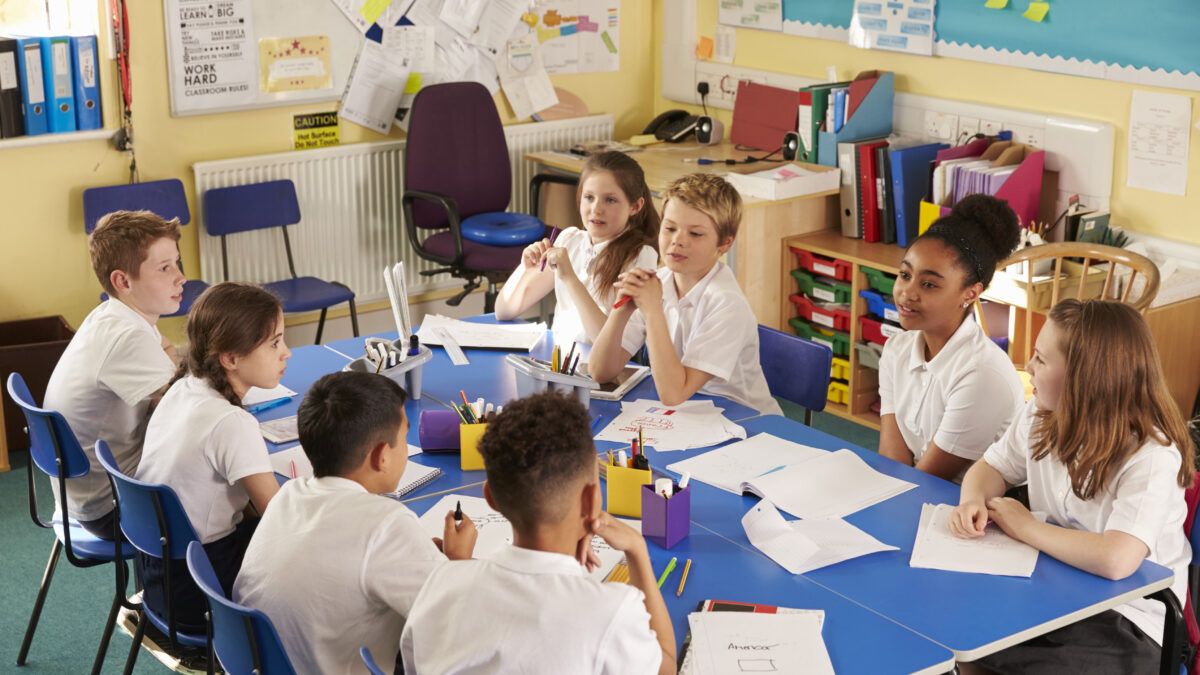All school pupils experiencing poverty will benefit from £200m funding to help close the attainment gap, the Scottish Government has announced.
In an update to Parliament outlining plans for the next phase of the £1 billion Scottish Attainment Challenge, education secretary Shirley-Anne Somerville confirmed the cash boost for the year ahead.
The Scottish Attainment Challenge was launched by the First Minister in 2015 to “bring a greater sense of urgency and priority” to the poverty-related attainment gap.
Recognising the impact of the pandemic and poverty on pupils across the country, a “redesigned approach” to the challenge will see funding of £43 million extended to all of Scotland’s local authorities to help tackle the attainment gap and support education recovery.
Head teachers will receive up to £130m next year through Pupil Equity Funding. They will be able to decide how best to invest the money to support disadvantaged pupils in their schools.
In addition, local authority work to improve the educational and wellbeing outcomes of care experienced young people will receive approximately £11.5m, with around £9m reserved for a number of a national programmes supporting children “to reach their full potential”.
The Scottish Government will also work with local authorities to set out the expected pace of progress in closing the gap.
Ms Somerville said: “Closing the attainment gap remains our key long-term ambition. We are increasing our investment to £1 billion over this parliamentary term to support education recovery and improve outcomes for children and young people impacted by poverty.
“We are determined to increase the pace of this crucial work and to ensure children and young people across different parts of Scotland reach their full potential. Our head teachers and teachers know their pupils best, and they have our full trust to help achieve this backed by £200 million for the year ahead. Schools can’t do this alone and we have fully aligned our work on closing the attainment gap with wider work to tackle child poverty.
“Nothing is more important than ensuring every child and young person has the same opportunity to succeed in education, regardless of their background – we will deliver this for them.”
Gayle Gorman, HMI chief inspector and chief executive of Education Scotland, said that Education Scotland remains “focused” on its long term commitment to working collaboratively with Scotland’s educators to ensure young people impacted by poverty “continue to be supported to achieve as much as their more affluent peers”.
She added: “In readiness for the changes that this refresh of the Scottish Attainment Challenge will bring, our senior regional advisors and attainment advisors will continue to engage with every local authority to provide support to schools and their community partners to ensure our learners disadvantaged by poverty have the opportunities and support they need to achieve their aspirations.
“This is a long-term commitment that has been supported by a system-wide, collaborative endeavour across Scottish education to make Scotland the best place to grow and learn.”
COSLA – the body representing Scotland’s 32 councils, said that tackling the impact of poverty and inequality on Scotland’s children and young people “continues to be a key priority for local government”.
Councillor Stephen McCabe, COSLA spokesperson for children and young people, said: “Councils are on the frontline of efforts to support children and young people in poverty every day. That’s why we welcome the recognition that councils across Scotland will be pivotal in work to tackle the attainment gap, not only providing additional support within schools but enabling stronger links with the wide range of important services for children, young people and their families that sit beyond the school gates.
“COSLA and our member councils will continue to work collaboratively with partners – locally, regionally, and nationally – ensuring that all children and young people in Scotland achieve the best possible outcomes from their education.”




